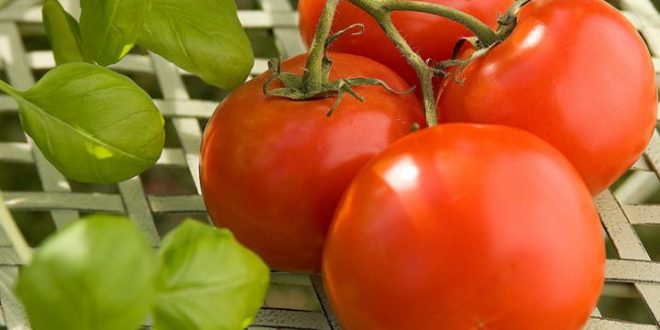Progress in the long-running battle to improve the flavor of the supermarket tomato has been achieved with help from an unlikely-seeming source: Chinese geneticists.
“Consumers complain that the modern tomato has little flavor. [It’s] like a ‘water bomb,'” said the study’s co-principal investigator Sanwen Huang, the deputy director general at the Agricultural Genome Institute at Shenzhen at the Chinese Academy of Agricultural Sciences.
How can farmers ditch this “water bomb” and reinstate the rich, sweet flavor of the tomato? To find out, Huang and colleagues investigated which genes are associated with tomatoes’ taste.
The scientists began the project by sequencing the whole genomes of 398 modern, heirloom and wild varieties of tomato. Then, the scientists created a 100-person consumer panel that sampled 160 tomatoes based on sensory qualities, including “overall liking” and “flavor intensity.”
Based on the panel’s feedback, the researchers identified dozens of chemical compounds that could be related to the tomato’s sumptuous taste. Using a statistical model that determined the concentration of various chemicals in the tomatoes, the scientists identified 33 flavor compounds, Huang said.
The researchers then measured the content of the 33 flavor compounds in each of the tomatoes, and identified about 250 genetic loci (specific points on a chromosome) that controlled tomato flavor.
This finding “revealed the genetic basis of tomato flavor,” Huang said. But the researchers also wanted to determine why store-bought tomatoes are so tasteless — i.e., “water bombs.”
It turns out that modern tomato cultivars are selected for qualities such as size, because consumers prefer large fruit, and firmness, because that trait makes tomatoes easier to ship, the researchers said. Meanwhile, the quality of flavor has been overlooked, the investigators said.
“We found that modern commercial varieties contain significantly lower amounts of many of these important flavor chemicals than older varieties [do],” the researchers said in the study.
Tasteless “water bombs”
When people bite into a tomato, its sugars and acids activate taste receptors, and a diverse set of volatile (airborne) compounds activates smell-related receptors in the nose.
“Volatiles, in particular, are essential for good flavor. For example, the removal of specific carotenoid-derived volatiles [from tomatoes] results in significant reductions in consumer liking,” the researchers wrote, citing a 2010 study in the Journal of the Science of Food and Agriculture.
The absence of volatiles could partly explain why store-bought tomatoes are so tasteless, the researchers wrote in the study. The researchers found that “13 flavor-associated volatiles were significantly reduced in modern varieties relative to heirloom varieties.” Moreover, refrigeration can alter a tomato’s volatile compounds, the study authors noted.
What’s more, smaller tomatoes have a higher sugar content, a quality that large, store-bought tomatoes often lack, the scientists found.
But there is hope for a future filled with tasty, new varieties of store-bought tomatoes, as “our results provide a road map for improvement of flavor,” the researchers wrote in the study.
By working together, geneticists, biochemists, breeders and consumers “can provide better-flavored tomatoes for our society,” Huang said.
Agencies/Canadajournal
 Canada Journal – News of the World Articles and videos to bring you the biggest Canadian news stories from across the country every day
Canada Journal – News of the World Articles and videos to bring you the biggest Canadian news stories from across the country every day




I suggest every Canadian that goes to Cuba, bring back tomatoes seeds. They are Not genetically modified! They actually taste like tomatoes. It just seems pretty stupid to modify a something you already screwed up! You cannot improve on mother nature.